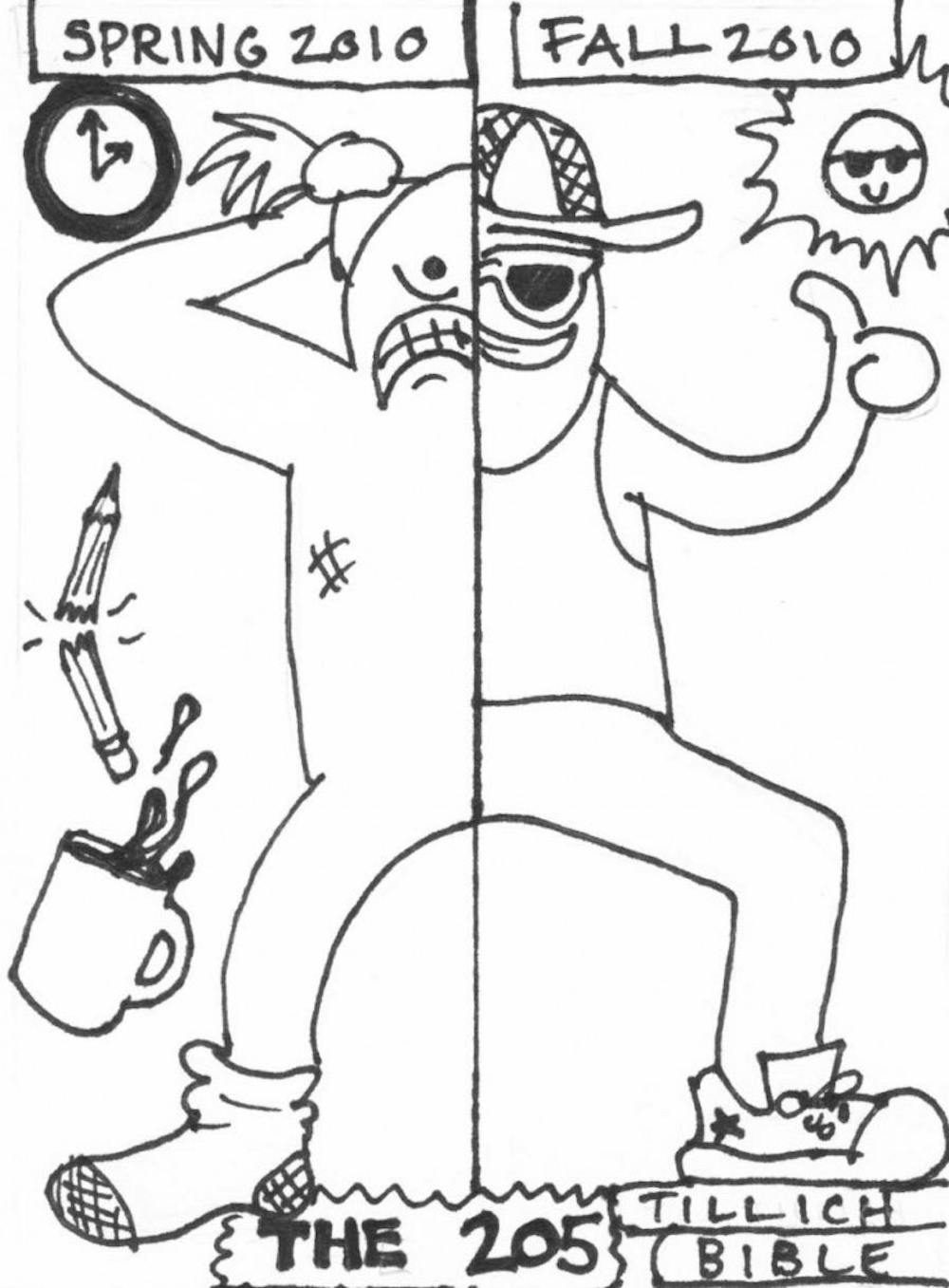Theology class streamlines writing requirement
(Samantha Heathcote -- The Beacon)
By Enid Spitz, Staff Writer -- spitz13@up.edu
"Biblical Tradition" – for the average American that phrase may inspire a yawn, but UP students normally have a quite different reaction. "Bib Trad," as it is more commonly known, may be more likely to give students chills, sweaty palms and knotted stomach.
Bib Trad is notorious on campus for its heavy course load and massive final paper. That is, until this semester. Students now enrolled in THE 205 will encounter quite a different experience.
Every five years UP's College of Arts and Sciences evaluates its required core curriculum.
"It is a year for evaluations," said Will Deming, chair of the Theology Department at UP.
Deming cited the new dean, Fr. Stephen C. Rowan, C.S.C. as a moving force behind the reform. The UP Theology Department, which is surprisingly large for this size of school and the small number of theology majors, is looking to make some big improvements.
Bib Trad is a course requirement for all students as part of the University's core curriculum. It is designed, according to the course description, to be a writing intensive course in which students hone their analytical skills. Visits to the writing center have always been highly encouraged, even required.
In past years, the final paper in Bib Trad was 25 pages of scholarly writing in rigid Chicago Style format. Now, it will now be eight to 10 pages. The class has shifted from emphasizing the technical aspects of writing to being more focused on subject matter.
From MLA to Chicago Style to APA, students are required to learn and employ various citation rules depending on the class and subject. In the past, Bib Trad was in large part devoted to teaching proper citation in Chicago Style.
"It was the general feeling that the focus on Chicago Style was taking over the course and there were questions about how valuable a skill that was for students to learn," Deming said. "We decided that teachers would be happier, students would be happier, if we scaled back that bit."
Students have some advice of their own.
"It would've been nice to have more interesting discussion and creative projects," said Kelsey Reavis, a junior who took THE 205 last fall.
Others are more inventive in their suggested remedies for Bib Trad.
"I would've minimized the work load and encouraged more dancing, Jesus-inspired of course," junior Kevin Hannan said.
UP students are familiar with the course evaluations that come at the end of every semester. Those evaluations made an impact, inspiring some of the Bib Trad changes. The Theology Department took into account students' advice, and so far, past students seem to agree that the shift in focus is a step in the right direction.
"Assignments focused more on Chicago Style and format than content," junior Lauren Johnson said about her Bib Trad experience last spring.
Her voice, along with other past students', has now been heard.
"It felt tedious," Hannon said of his class. "I just wish I had been there when they changed it."
Professors have a different workload now, too. Rather than spending a lot of time grading lengthy papers, they have more time for other academic pursuits, such as the theological lecture series that the department is creating for this school year. The lectures are intended as an additional resource for students in that the audience can ask questions and have discussions. Less focus on long writing assignments in Bib Trad, the department hopes, will have greater variety in UP's theological education.
courages professors to use their time to reach out beyond the campus. UP prides itself on its service and connection with the community, something the Theology Department is working to expand as well.
"Being in the great unchurched Northwest, we should be a resource for the region," Deming said.
Even with less writing to turn in, the Theology Department still intends Bib Trad to be a large part of students' education.
"It is considered to be a vital part of the core because we are teaching students not just to use facts but to understand you as a human being," Deming said. "We're trying to produce citizens for society and the world."








